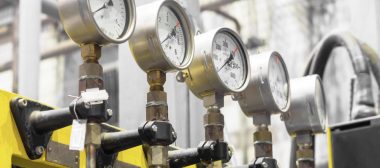All organisations can grow and thrive with the help of excellent employee performance. Reliable workers are crucial to the success of any business. That’s why it makes sense for a firm to pay attention to worker satisfaction and retention, which are essential to reducing turnover costs whilst increasing productivity levels. Satisfied employees provide a better quality of work, including when it comes to customer service.
There are many ways to boost employee satisfaction and retention, such as offering competitive benefits and compensation, flexible work arrangements, and a positive work environment. But perhaps one of the things that you may not have thought of in achieving this goal is GPS tracking.
GPS tracking technology has become a part of various industries, including non-tech companies. GPS trackers and devices benefit these businesses in several ways, including monitoring the location of vehicles, assets, and workers. And when used effectively and responsibly, these GPS systems can help boost employee satisfaction and retention. Here’s how:
1. Employees Feel More Empowered
Empowering the workforce is beneficial for any business as it enables employees to gain more control and influence over job-related tasks and decisions. Employee empowerment means providing employees with the support, resources, and tools required to solve issues, make intelligent choices, and contribute to the firm’s success.
Real-time tracking can help make intelligent choices more quickly in many ways, including through effective communication. It facilitates better communication between the management and team members, which is vital to achieving collaboration goals.
And because the workforce feels empowered, it can lead to increased job motivation, productivity, and satisfaction.
2. GPS Technology Positively Impacts Employee Collaboration and Communication
Employees involved in transportation, logistics, and field operations benefit immensely from GPS systems. For one, the technology allows real-time location sharing. This is useful when coordinating with team members, especially when working on joint duties.
Managers use real-time location data to dispatch employees and give them suitable assignments based on their proximity to a specific area or job site. This benefit streamlines the process, which improves the employee’s response time whilst allowing everyone to communicate with the whole team.
GPS data also gives the employee situational awareness. For example, they can check a particular location’s weather and traffic conditions. Having such information ready can help workers make more informed decisions, promoting better coordination and collaboration.
3. Location Tracking Improves Worker Safety
With many Australian companies having a mobile workforce these days, real-time location monitoring has become more crucial than ever. It’s a growing trend for many reasons, including that it helps locate employees during emergencies faster than without the technology.
If employees drive company-owned vehicles, data from the GPS tracker can be used to determine which workers follow the rules of the road. Problems like speeding and delays can be avoided or rectified once data has been evaluated.
Some industries have their workers deployed to remote job sites. If an accident occurs or employees face any hazard, sending help and backup is much more manageable with GPS tracking. That’s because employers know exactly where the incident occurred, which can sometimes be a lifesaver. You can use this guide to help you which GPS tracker to use for your lone workers.
4. GPS Tracking Helps with Worker Efficiency and Productivity
GPS devices offer numerous benefits for employees, whether on the road or at a remote no-network-coverage job site. They can use the technology for route optimisation to help them get to their destination safely with less hassle. GPS provides real-time traffic updates, so employees can find the best route to take them to save time and reduce fuel consumption. Because they can get to their destination quicker, GPS has a huge role in enhancing the employees’ overall productivity.
GPS tracking can also be used for managing time. Employees get accurate ETAs upon which they can base their decisions. They can therefore allocate their time effectively to improve their efficiency.
While it is true that monitoring driving behaviour benefits managers more, it does help ensure employee safety. When workers see their bad driving habits, such as speeding or harsh braking, they can correct these behaviours to reduce the risk of accidents.
5. GPS Dramatically Increases Employee Accountability in the Workplace
Canadian motivational speaker and author Bob Proctor once said, “Accountability is the glue that ties commitment to the result.” This quote highlights the significance of accountability when it comes to achieving the desired outcome and fulfilling commitments.
In the workplace, accountability is one of the critical factors that connect a worker’s motivation to perform and complete a specific task. That’s why any workplace needs to hold its employees accountable for their responsibilities and actions. With accountability comes greater focus and diligent effort to accomplish the ultimate goal.
There are different ways to make sure employees feel that they are accountable for their actions within the organisation. One is through GPS tracking, which can be used to monitor performance. GPS devices provide real-time data on locations, routes, and even the total time spent at a job site. With the information gathered, managers, as well as employees, can track performance to make sure work is completed efficiently and on time.
A Happy Employee is a Productive and Engaged Employee
The importance of worker satisfaction cannot be emphasised enough, especially when it comes to productivity and retention. Ensuring employees feel valued can lead to better performance, lower turnover rates, and less stress for you.
Here at Simply Unified, we highly recommend businesses integrate a GPS tracking system that suits their operations. From real-time location data to employee monitoring benefits, it’s a must in today’s modern workplaces and project sites.





